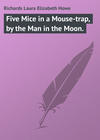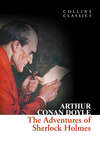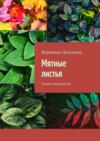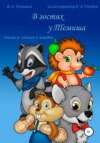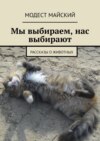Читать книгу: «Five Mice in a Mouse-trap, by the Man in the Moon.», страница 7
CHAPTER XIII.
OFF TO THE SEA-SHORE
Uncle Jack was as good as his word, and the next morning was a busy time at the Mouse-trap.
Trunks were packed, jackets were brushed, and wonders were accomplished in the way of getting ready before breakfast. As I looked in my glass, there seemed to be only two rooms in the house where there was no bustle and confusion: one was the nursery, where Puff lay, half-awake and wondering what all the noise was about; and the other was the room next to it, where my dear little Fluff was kneeling by the bed, praying that her darling sister might be "quite all perfectly well" very soon.
And now the carriage was announced; the "good-byes" were softly whispered at the nursery door, and away went four of my mice, leaving the poor old Mouse-trap quite deserted, with only Mrs. Posset and the cook and faithful Tomty, beside the poor little sick mouse.
A few hours journey on the train brought the travelers to the lovely sea-shore place where Aunt Grace Wilton was spending the summer: and what was their delight on leaving the train, to find Aunt Grace herself waiting for them, with her basket-wagon, and Max, the pretty black pony. I know Mrs. Wilton, though she does not remember me. I used to pay her frequent visits when she was a child, and now I go to see Roger, her little boy, who is a great friend of mine, and a fine little fellow. He had the scarlet fever when he was two years old, so that his mother had no fear of his taking it again. Well how all those mice managed to get into that pony-carriage is more than I can tell you: but they did manage it somehow, and after bidding good-bye to their dear Uncle Jack, who was going back in the next train, as he did not like to stay away from Puff, they rolled away at a fine pace toward Glenwood, while Susan followed in the carts with the trunks.
A very pretty place Glenwood is, and very much delighted the four mice were, when they tumbled out of the carriage, and saw Roger waiting to welcome them. Here I will make a little picture of Roger, by the way, as of course a great many of you have never seen him.
"How do, Nibble?" he cried, jumping up and down with joy as he saw his cousins. "How do, all of you! come and see my pets! I-have-a-cat-and-some-birds-and-a-rabbit-and-a-lamb-because-I-haven't-any-brothers-and-sisters-you-know-and-a-dog – big-enough – to-eat-them-all-up-and-do-you-think-Puff-would-like-a-white-kitten?"
Roger said all this as if it were one word, and it was no wonder that the four mice looked rather bewildered.
"Gently, Roger! gently!" said his mother, laughing. "Your cousins cannot understand a word you say, if you talk so fast."
"I heard 'lamb' and 'kitten,' Auntie," said Fluff, sedately, "and I should like to see them very much indeed."
"I want to go down to the beach, please, Auntie!" cried Nibble.
"And so do I!" said Brighteyes, eagerly.
"Very well, dears," said Mrs. Wilton; "you may run wherever you like, if you are not tired. I shall take little Downy in the house with me, for I see he is very sleepy, and wants a nap. But, my chickens, don't you want some lunch before you go out to play?" she added, turning back from the door.
"Oh! no, Auntie!" they all cried. "We had lunch in the train, as much as we wanted."
And off they all scampered in different directions, while Mrs. Wilton went into the house, carrying little sleepy Downy in her arms. Fluff and Roger walked away hand in hand, and I tipped my glass so that I could follow.
"Have you many pets, Fluff?" asked Roger.
"No!" replied Fluff. "We have only the three dogs, and José, the brown donkey, and the kitten that Brighteyes found in the tree. But then we have a great many dolls," she added, "and I suppose you have'nt any dolls, because you are a boy."
"Animals is better than dolls," said Roger. "Here is my lamb, under this tree. Isn't he lovely? here, Belladonna, come and have some sugar, dear!" The lamb, which was a very pretty one, came up to be petted, and ate a lump of sugar with every sign of approval.
"What did you say his name was?" asked Fluff.
"Belladonna," replied Roger, "because he wears a bell, you know. I think it is a very pretty name, but Mamma laughs at it."
"It's medicine, isn't it?" said Fluff, doubtfully.
"Well, yes!" said Roger; "but that doesn't make any difference. Rhubarb is medicine, too, and yet it makes nice pies and tarts."
"So it does!" said Fluff; "I never thought of that. And have your other pets, medicine-names, too, Roger?"
"The dog is Blanco," replied Roger. "I called him that before I had him, because I thought he was going to be white, and Blanco means white. And then he went and was black when he came, but I don't like to change names, so I called him so just the same. And I call my cat Plunket, after the story of the Chattering Cat, and the rabbit is Binks, and – oh! well, let us go in and see them, for they are all in the play-room, and it is hot out here!"
And Roger led the way to the house, while Fluff followed meekly, wondering, as she said afterwards to Brighteyes, how any one could talk so fast without "getting his tongue all tied up with his teeth."
In the large, sunny play-room I left the two little ones, having a grand game of romps with Blanco and Binks, while the birds, let loose from their cage, fluttered about their heads, in no fear of the well-behaved cat, who sat and looked at them as if she had no idea that they were good to eat. Yes it was a regular Happy Family, and a very pretty sight.
But I wanted to see what Nibble and Brighteyes were about, so I turned my glass towards the beach, which was not far from the house, though in the other direction. There I found my two eldest mice deep in consultation. Nibble was just saying, "but, Bright, mermaids don't have legs and tails, too, for that would be ridiculous. Don't you remember?
'The little white mermaidens live in the sea,
In a palace of silver and gold.
And their neat little tails are all covered with scales,
Most beautiful for to behold.'
But it doesn't say anything about legs, and there aren't any in the pictures." "I can't help it, Nibble!" replied Brighteyes, rather pettishly. "I can't cut off my legs, and I am going to play mermaid. I can be the queen, and queens have everything they want, I know." And she turned round, displaying to my view a superb tail of seaweed, fastened to her sash, and trailing upon the ground.
"Well," said Nibble, "it is a lovely tail, after all. But we must take off our shoes and stockings, and put them in the fort for safe keeping. Then we can play 'wild white horses' and 'mermaid' too."
The shoes and stockings were soon off, and safely hidden in a sand fort of very superior construction. Then began a wild rushing up and down the smooth sandy beach, with much neighing and kicking on Nibble's part, while Brighteyes waved her seaweed tail in a graceful and effective manner, and sang her song of the mermaids.
"On wild white horses they ride, they ride,
And in chairs of pink coral they sit,
They swim all the night, with a smile of delight,
And never feel tired a bit."
"Look!" said Nibble, "at that line of rocks running out into the water. What fun to jump from one to the other! come on, Brighteyes!" No sooner said than done. It was no easy matter to jump from one smooth slippery rock to the next, without losing foothold, but that made it all the more exciting.
"I am the Nixie!" said Brighteyes, "and you are the knight who caught her asleep and cut off one of her golden ringlets, so that she could not disappear or turn into a fish. Sing, now, and catch me if you can!"
She sprang lightly to the next rock, and thence to the next, while Nibble, pursuing her, sang:
"Nixie, white Nixie, I have you now!
The magic ringlet is clipped from your brow.
You vanish no more 'neath the shining tide,
And I have you and hold you, my snow-white bride!"
Brighteyes sang again:
"Hunter, rash hunter, your triumph's not long,
Your arm drops down 'neath the spell of my song.
You turn to ice and you turn to stone,
And the sea-waves laugh as they hear you moan."
Here the Nixie waved her tail triumphantly, and flirted it in the hunter's face in a way that was too provoking to be endured. The rash youth sprang forward, alighting on the rock and on the Nixie's toe at the same instant. There was a moment of shrieking and clutching at the air, as they tried to regain their balance, and then with a loud splash, pursuer and pursued disappeared beneath the water.
This was really past a joke, and I became much alarmed. As for Bmfkgth, that excellent dog was quite frantic with excitement, and his green hair stood on end, causing him to present a truly remarkable appearance. In another minute, however, we saw the two brown heads emerge from the water; Nibble clambered up the rock, and pulled his sister up after him; then breathless and dripping, they jumped and climbed back over the long line of rocks, till they reached the shore. They sat down on the beach and looked at each other in silence for a few minutes. Then Nibble said, "I say, Brighteyes, ain't you just glad that Mrs. Posset isn't here? look at your frock, now!" "Oh! I don't want to look at it!" said Brighteyes; "and besides your knickerbockers are just as bad. But we have lost our hats, Nibble, and they were our best ones. We ought to have taken them off when we took off our shoes and – but, goodness me! where are our shoes and stockings? Nibble, where is the fort? I don't see it anywhere."
Indeed, it would have been strange if they had seen it, for the rising tide had completely covered it some fifteen minutes before. As for the shoes and stockings – "Look, Bright!" said Nibble, grasping his sister's arm, and pointing to the water. Yes, sure enough, there they were. Far out of reach, floating serenely along, the boots nodding a graceful farewell to their former owners as the little waves bore them off on their voyage of discovery, while the stockings, less courageous, had yielded to despair, and floated limp and piteous, stretching out their scarlet length in a vain appeal for rescue.
This last blow completely sobered the bold spirits of my two mice, and as the loud ringing of a bell proclaimed that dinner-time was come, they turned silently and mournfully towards the house.
A bee came tumbling into my ear,
And what do you think he remarked, my dear?
He said that two tens made up a score,
And really and truly, I knew that before.
CHAPTER XIV.
STORIES AGAIN
Poor little Puff! she certainly was very ill. All day long she tossed and moaned in feverish pain, to the great distress of her good uncle, and the faithful Mrs. Posset. They were very, very anxious about her; but the doctor, who came every day, said that there was no immediate danger, as long as the child slept so well at night. All night long she slept quietly, sometimes smiling in her sleep, and always looking peaceful and happy. Yes, indeed, I flatter myself I had a great deal to do with that. Every night I sat by my little mouse's pillow, and told stories and sang songs, till my brother Sun came and winked at me through the window, and told me it was not night at all, and I must take myself off and leave the field to him. Stories? dear me, there was no end to them; and you shall have some of them, if you will. Here is one, for example, of which Puff was extremely fond. It was called
THE FLEA
Once upon a time there was a flea.
Wee wee.
And he hopped,
And he hopped,
And he hopped.
And as the flea was hopping one day,
He met a mouse,
Round the house,
And he squeaked,
And he squeaked,
And he squeaked.
And when the mouse saw the flea, he said to him, "what do you do for a living?" and the flea said "I bite people." Then the mouse said, "as you have lived upon others, others shall live upon you!" So he caught up the flea, and he ate him up. And there was an end of the flea.
But as the mouse was squeaking one day,
He met a cat,
Very fat,
And she mewed,
And she mewed,
And she mewed.
And when the cat saw the mouse, she said to him, "what do you do for a living?" And the mouse said,
"I nibble cheese,
And eat fleas."
Then the cat said, "As you have lived upon others, others shall live upon you!" So she caught the mouse, and she ate him up. And there was an end of the mouse.
But as the cat was mewing one day,
She met a dog,
Named Gog,
And he barked,
And he barked,
And he barked.
And when the dog saw the cat, he said to her, "what do you do for a living?" And the cat said,
"I eat mice,
Because they are nice."
Then the dog said, "As you have lived upon others, others shall live upon you!" So he caught the cat, and he ate her up. And there was an end of the cat.
But as the dog was barking one day,
He met a Chinaman,
Ting-Pan.
And he talked,
And he talked,
And he talked.
And when the Chinaman saw the dog, he said to him, "what do you do for a living?" And the dog said, "I slay the cat, and likewise the rat." Then the Chinaman said, "as you have lived upon others, others shall live upon you!" So he caught the dog, and he cooked him with rice, and ate him up. And there was an end of the dog.
But now, you see, the Chinaman had eaten
The dog,
Named Gog,
And the cat,
Very fat,
And the mouse,
Round the house,
And the flea,
Wee wee.
So when he had eaten them all, they all disagreed with him, and he died. And there was an end of the Chinaman, Ting-Pan.
This was Puff's favorite story, and I had to tell it at least once every night, and often twice. Then when that was done, she would call for "Michikee Moo." You have never heard that, I'll warrant, for you do not, most of you, understand the Pawnee dialect, and "Michikee Moo" is a Pawnee ballad. The Indian mammas sing it to their pappooses, as they rock them in their bark cradles under the trees, in the western forests. I had to translate it into English, of course, for Puff; so here it is.
MICHIKEE MOO
AN INDIAN BALLAD
Whopsy Whittlesy Whanko Whee,
Howly old growly old Indian he,
Lived on the hill of the Mungo-Paws,
With all his pappooses and all his squaws.
There was Wah-wah-bocky, the Blue-nosed Goose,
And Ching-gach-gocky, the Capering-Moose;
There was Peeksy Wiggin, and Squawpan too,
But the fairest of all was Michikee Moo.
Michikee Moo, the Savoury Tart,
Pride of Whittlesy Whanko's heart.
Michikee Moo, the Cherokee Pie,
Apple of Whittlesy Whanko's eye.
Whittlesy Whanko loved her so
That the other squaws did with envy glow.
And each said to the other "Now what shall we do
To spoil the beauty of Michikee Moo?"
"We'll lure her away to the mountain top,
And there her head we will neatly chop!"
"We'll wile her away to the forest's heart,
And shoot her down with a poisoned dart!"
"We'll 'tice her away to the river side,
And there she shall be the Manitou's bride!"
"Oh! one of these things we will surely do,
And we'll spoil the beauty of Michikee Moo!"
"Michikee Moo, thou Cherokee Pie,
Away with me to the mountain high!"
"Nay, my sister, I will not roam;
I'm safer and happier here at home,"
"Michikee Moo, thou Savoury Tart,
Away with me to the forest's heart!"
"Nay, my sister, I will not go;
I fear the dart of some hidden foe."
"Michikee Moo, old Whittlesy's pride,
Away with me to the river-side!"
"Nay, my sister, for fear I fall.
And wouldst thou come if thou heardst me call?"
"Now choose thee, choose thee thy way of death,
For soon thou shalt draw thy latest breath.
We all have sworn that to-day we'll see
The last, fair Michikee Moo, of thee!"
Whittlesy Whanko, hidden near,
Each and all of these words did hear.
He summoned his braves, all painted for war,
And gave them in charge each guilty squaw.
"Take Wah-wah-bocky, the Blue-nosed Goose!
Take Ching-gach-gocky, the Capering Moose!
Take Peeksy Wiggin, and Squawpan too,
And leave me alone with my Michikee Moo!
This one away to the mountain-top,
And there her head ye shall neatly chop.
This one away to the forest's heart,
And shoot her down with a poisoned dart.
This one away to the river-side,
And there let her be the Manitou's bride.
Away with them all, the woodlands through.
For I'll have no squaw save Michikee Moo!"
Away went the braves, without question or pause,
And they soon put an end to the guilty squaws;
They pleasantly smiled when the deed was done,
Saying "Ping-ko-chanky! oh! isn't it fun?"
And then they all danced the Buffalo dance,
And capered about with ambiguous prance;
While they drank to the health of the lovers so true,
Brave Whittlesy Whanko and Michikee Moo.
"I wish I had an Indian doll, Mr. Moonman!" said Fluff one night, after I had sung this ballad to her. "A little pappoose! it would be so nice!"
"Nothing is easier!" I replied. "Take Katinka, there, who has long black hair; stain her face and neck with walnut juice, and paint her with stripes and spots of red and yellow. Then wrap her up in a blanket and put some beads round her neck, and you have an Indian doll. She will be a truly lovely object, according to Indian ideas, which indeed may not be quite the same as your own, but what of that?"
"Thank you kindly, Mr. Moonman!" said Katinka, who was spending the night on Puff's bed. "I am very sure my dear little mother will do nothing of the kind. Walnut juice, indeed! and for me, who have the finest complexion in the doll-house! You might take Sally Bradford, now, and she would not look more like a witch than she does now; but I am a French doll, and am not used to such treatment."
"Don't abuse Sally Bradford, Miss!" I said. "She is an excellent doll, for whom I have a great respect; and as for your fine complexion, why, we all know that 'handsome is as handsome does;' and I should like to know who does all the work in the doll-house. But speaking of witches, I wonder if Puff has ever heard the story of the witch who came to see little Polly Pemberton. That is a queer story."
"No, I have never heard it, Mr. Moonman!" cried Puff eagerly. "Was it a real witch? do tell me the story!"
"Oh! as for being real," I replied, "that is none of my business. My business is to tell the story which I will do. I heard a little girl in New Haven, telling it to her brothers and sisters the other night, and she frightened them half out of their wits. I will try to tell the story just as she did. Did you know, children, that there were witches in old times? well, there were, or people thought there were, which came to much the same thing for the witches. Hear this story, and then see what you think about the matter.
"Well, once there was a little girl, about eight years old. I shall call her Polly, but you need not feel obliged to follow my example. If you prefer to call her Kamschatka, I don't mind in the least. This little girl lived with her father and mother, in a little red cottage which stood quite by itself near a thick wood. Every day her parents went to the village, which was a mile or more away, to work, and they left little Polly in charge of the house, for she was a good and quiet little girl, and never was lonely or sad. One day Polly was sitting by the window, knitting, when she saw a queer-looking old woman coming along the road; such a queer old woman. Have you ever seen a picture of Cinderella's fairy godmother? well, she looked just like that, pointed hat, red cloak, and all. When the old woman saw Polly, she stopped, and looked earnestly at her; then she hobbled slowly up to the door and knocked. Polly ran and opened the door. "How are you, my child?" said the old dame; "let me in. I'm your grandmother." Polly had always been taught to be respectful to old people, so she let the old woman in, and politely handed her a chair; but she could not help saying, as she did so, "excuse me, ma'am, but I don't think you can be my grandmother." "That shows how much you know about it!" replied the old woman; "how old are you?" "Eight years old," said Polly. "Very well!" said the old woman; "now I am ninety-six years old, just twelve times as old as you are; therefore, I'm your grandmother." "But I don't see – " began Polly. "Oh, if you want to argue about it," said the old dame, "here we are," and she drew from her pocket a small book, and opening it, read aloud, "Take a little girl eight years old, and multiply her by twelve; what will be the result? Answer: her grandmother. There!" she said, triumphantly, "what do you think of that?" Poor Polly did not know what to think of it. She looked at the book, which looked exactly like Colburn's Arithmetic. "Is that Colburn's Arithmetic, ma'am?" she asked timidly. "Colburn's Fiddlestick!" said the old woman, shortly. "Here's another for you. Put a boy up an apple-tree, and divide him by a good sized bull-dog; what will remain? hey?" "I'm sure I don't know," said poor Polly, faintly. "Mince-meat, of course," said the old woman. "You don't know much, evidently." "What a dreadful looking cat!" thought Polly. And indeed, he did not look like an amiable animal. His green eyes shone with an uncanny light, and his long claws were constantly sheathing and unsheathing themselves, as if they longed to scratch somebody. However, the old woman certainly seemed fond of him. "Hobble-gobble!" she said, "prince of cats, black diamond, blazing emerald, attend!
Kickery punk, punkery kick,
Bring the teapot and be quick!"
The cat gave one spring, and in the twinkling of an eye he reached the cupboard where the silver was kept. Now the door of the cupboard was locked, as Polly, in her surprise, (which was fast turning into terror,) thankfully remembered. The cat, finding it locked, turned and looked at his mistress, who, striking her stick on the floor, exclaimed
"Scratchery, patchery, tooth and nail;
Open the door with a quirk of your tail."
Quick as thought the creature turned round and inserted the tip of his tail in the key hole. In a moment the door flew open, and seizing the silver teapot in his claws, the cat sprang back with it to his mistress, who, snatching the teapot, hid it under her red cloak. At this Polly sprang to her feet, with a cry of mingled fear and anger; but the witch (for this certainly must have been a witch, if ever there was one,) pointed her stick at her, and muttered some strange words which sounded like "Buggara wuggera boogle jum, Hobble-gobble!" She said this last word suddenly and sharply, and Polly was quite startled; but fancy her alarm when a large black cat crept out from beneath the red cloak, and sitting down on his mistress's knee, looked up in her face with an air of unearthly sagacity, and poor Polly fell back in her chair, unable to move hand or foot. There she sat, motionless, but perfectly conscious, watching this dreadful old hag. And what do you think the creature did next? She took some strange looking herbs from her pocket, and put them in the teapot, which she then filled with water and set on the stove. Then, calling to her cat, she began to hop slowly round the stove on one foot. The cat followed her, hopping first on one black foot and then on another, but keeping its unearthly green eyes fixed on Polly all the time. The witch kept muttering strange words like those which had thrown the spell on Polly; while her companion moved in time if not in tune.
"Buggara wuggara, boogle jum jum!
I will have all, and my cat shall have some.
Boogle jum! boogle jmm! buggara boom!
Down with the teapot and up with the broom!"
"By the time she had hopped round the stove six times, the water in the teapot was boiling furiously. The old hag stopped and said "Hobble gobble, prince of cats, produce the broom-stick!"
"The cat jumped up on the stove, without seeming to mind the heat in the least, though the iron was nearly red hot. He lifted the lid of the teapot, and took out – what do you think, now? You will never believe me, but I am not responsible for the story. He took out – a broom. A long broom, with a bright red handle, which seemed somehow as if it was alive, for it actually wriggled as the cat, leaping down from the stove, handed it to his mistress. The old woman snatched it, and waved it three times round Polly's head. Then she mounted the stick as if it were a horse, and calling once more to her cat, she rose in the air, and vanished up the chimney, the cat sitting beside her on the broom-stick, and grinning hideously at Polly as long as he remained in sight. That was truly dreadful, was it not? that comes of leaving little girls alone all day, which is a very bad plan."
"But is that all?" asked Puffy. "Doesn't it tell what became of Polly, and the teapot? You haven't told any end to the story, Mr. Moonman."
"Exactly!" I replied. "There isn't any end to it. But there is an end to this night, and that end has come. Farewell, my mouse, till to-morrow night."
And I whisked away, leaving Katinka and Puff so much astonished that one fell off the bed, and the other woke up. Wasn't that funny?
Покупайте книги и получайте бонусы в Литрес, Читай-городе и Буквоеде.
Участвовать в бонусной программе
